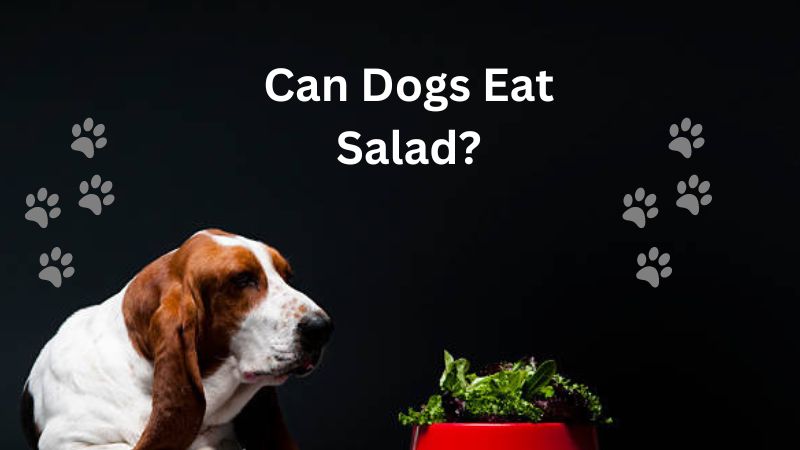
Salads are regarded as one of the healthiest foods. Nothing is boring about them anymore. There has been significant growth in the variety of salads in recent years.
Various salads are available on the market, each with its unique flavour and healthy dressing that enhances the salad’s taste. However, the question is whether these salads are beneficial to your pets. Would it be conceivable to use a salad as a pet’s food? Based on your experience, what are the benefits and drawbacks?
Can dogs eat salad or salad leaf? The answer is yes but only in small quantities.
Read the following article for a few minutes and learn.
Can dogs eat salads leaf?
You can feed your dog salad leaves, provided they contain safe ingredients for your furry friend to consume and are made from fresh ingredients.
The most nutritionally dense members of the lettuce family can be eaten by dogs, including romaine lettuce, arugula, iceberg lettuce, kale, and even spinach.
Since these leafy vegetables contain a high amount of fibre, giving them to your Dog in large quantities will make it difficult for them to digest.
As a consequence, it is recommended that you cut your greens into smaller pieces for them to be able to eat them more easily.
Choosing green salads: benefits and risks
The benefits include:
- A valuable source of fibre
- Provides essential vitamins for the health, well-being, and growth of dogs
- There are few calories and fats in it, so it is a healthy choice
- This is a nutritious meal substitute that can be consumed either as a substitute for a meal or as a healthy snack
Health risks:
- There is a possibility that this food may be difficult to digest for some dogs
- When consumed in excessive amounts, it can cause diarrhoea, gas, and stomach upset
- The food does not contain enough bioavailable nutrients for the dogs to reap the benefits that the food provides
Are Fruit salads okay for dogs?
Your dogs can eat many fruits; fruits are healthy treats due to their high levels of vitamins.
Due to the low-calorie content of these sweet and salty snacks, you don’t have to feel guilty about eating them.
Some fruits, however, can be lethal to your pup when consumed in large quantities.
Benefits of fruits for health
- Undoubtedly, fruits are a healthy alternative to many processed snacks.
- Health-promoting antioxidants, such as Vitamins A and C, carotenoids, and flavonoids, are found in them. Antioxidant-enriched diets may improve the health of ageing dogs.
- Besides being a healthy fluid resource, fruits can also help keep you hydrated.
The following is a list of fruits that are used in dog salads
Several fruits and vegetables are nutritious for your Dog.
Here are some healthy ingredients you can add to your Dog’s salad.
Apples
Apples provide abundant vitamins A and C. They are also fibre-rich and have low fat and calorie content, making them suitable for your Dog.
Remove the seeds and cores when you feed your Dog an apple.
Banana
You can choose bananas for your Dog as a nutritious treat. As well as potassium, vitamins, biotin, fibre, and copper, they also contain a large amount of copper. However, there is little sodium and no cholesterol in the diet.
As a result of their high sugar level, they, however, should be fed in moderation.
Blueberries
Apart from being an excellent antioxidant source, blueberries are also known for their ability to prevent cellular damage. It is also relatively high in fibres and phytochemicals, which provides another benefit to dogs.
Cantaloupe
Cantaloupe is an outstanding supply of water and fibre for dogs and healthy food to consider. The fruit is loaded with dietary fibre and offers a moderate calorie count.
Cucumbers
Cucumbers are very low in calories and have a large amount of water.
Additionally, they are a healthy source of vitamins K, C, and B1 and potassium, copper, magnesium, and biotin.
Pears
It is a healthy salad ingredient for dogs since it contains a rich source of iron, K and C vitamins, and dietary fibre.
Pear seeds, however, should not be fed to dogs as they contain cyanide, which is a poisonous substance to dogs and should be avoided at all costs.
Pineapple
The perfect sweet treat for your Dog these are perfect sweet treats for your Dog. Nevertheless, you should peel the pineapple peel, as it can be challenging for your buddy to chew.
Their oesophagus might also get scratched.
Strawberries
In addition to its delicious taste, this fruit is packed with fibre and vitamin C. This fruit contains an enzyme that can aid in the whitening of your Dog’s teeth.
So, if you want to feed strawberries to your pets, you should do so sparingly due to their sugar content.
Watermelon
Ninety-two per cent of the watermelon is water, so it is perfect for cooling down during those scorching summer days. As with watermelon, remove the seeds before giving them to your Dog.
Sprouts of Brussels
Dogs may suffer gastric problems if they consume too many Brussels sprouts because of their rich source of nutrients and antioxidants.
Carrots
It is a tasty low-calorie snack with a lot of fibre and beta-carotene.
It contributes to the production of vitamin A in your Dog and is excellent for your Dog’s dental health.
Celery
This green, crunchy snack contains vitamins A, C, and K. Celery is also known to freshen dog breath.
Dogs can eat chicken salad, right?
Indeed, chicken salad is regarded as a healthy and nutritious meal.
It contains a few calories but a lot of protein, vitamins, and minerals. Salads can be either safe or unsafe for dogs depending on what is added. Safe ingredients like chicken, celery, bell peppers, and olive oil can be added to your dog’s salad.
But adding unripe tomatoes, garlic, chocolate, and garden plants is dangerous for dogs.
A chicken salad’s health benefits
Energiser
Chicken is one of the leanest meats on the market, so it’s the perfect food for dogs. Dogs need it for energy.
Strengthens the muscles
As your dog ages or becomes active, his muscle mass decreases and needs to be replaced. Chicken is a perfect solution to prevent muscle loss and keep your Dog healthy.
Fatty acid omega 6
Providing omega-6 fatty acids to your Dog will support his healthy skin and coat.
Chicken Salad for Dogs: How Is It Made?
The ingredients used in preparing chicken salad are crucial to determining whether it is safe to eat for dogs.
In the basic chicken salad for dogs, you can dice up the pieces of cooked Chicken, bell peppers, celery, and carrots.
Use dressings without avocado, lemon juice, cilantro, vegetable oil, yoghurt, garlic powder, salt, or pepper. Because these ingredients are considered dangerous for your Dog, please do not add them.
Can dogs eat avocados in salads?
As an excellent source of healthy fats, avocados are a great addition to many chicken salad recipes.
In any case, we do not suggest you offer this fruit to your dogs anytime.
The fruit of the avocado plant contains a compound known as persin. Avocado contains potent antifungal compounds in its seeds, leaves, and fruits. Consuming large amounts of this compound may significantly increase the toxicity of the fruit.
Dogs also have difficulty digesting avocado pits because they do not digest them well. Therefore, if your Dog swallows the avocado pit, it may result in blockages that will require surgery to be removed.
There is also the possibility that the avocado pulp may also cause inflammation to the pancreas, a condition known as pancreatitis. The Dog may suffer if he consumes even a small amount of avocado pulp in his diet.
In that case, it is best not to feed your dog chicken salad with avocado dressing.
Can dogs eat onion salads?
Onions should not be provided to your canine companion since they harm their health.
Many parts of the onion plant can be toxic to your pet, including the juice, flesh, leaves, and onion powder, all of which can be fatal to dogs.
Furthermore, it is irrelevant if the onion is raw, cooked, or processed because it remains highly toxic to dogs no matter how it is prepared.
In some commercial chicken salads, powdered onion might be added to the recipe as an ingredient. If you want to buy a can for your Dog, read its ingredients list.
The same applies to homemade chicken salads with onions that should not be given to your Dog.
Frequently Asked Questions
Can dogs eat grapes in salads?
Grapes are one fruit your dogs should avoid. Grapes can cause kidney failure in dogs if eaten in large quantities.
Can dogs eat salad dressing?
Salad dressings are often made up of fats and oils, which are not helpful for your Dog’s health. So, these ingredients should not be added to your Dog’s diet.
Can dog salad be topped with oil?
There is a risk of cardiovascular disease, pancreatitis, weight gain, and obesity in dogs that consume too much fat.
Added saturated fats to your Dog’s diet may also increase his high cholesterol levels, which are known to trigger inflammation in the body.
Are seasonings allowed in dog salads?
Dogs may be adversely affected by the seasonings found in chicken salad, mainly when it comes to commercial chicken salads because many of them are artificial.
As well as being full of salt, they contain fillers, preservatives, and flavourings that harm your health.
A little seasoning can be okay for your puppy occasionally, but a lot of it can cause stomach upsets if there is too much of it.
Can mushrooms be added to Dog’s salad?
A dog may become poisoned if they come into contact with wild mushrooms if they come into contact with them. So, don’t add mushrooms to your Dog’s salad.
The conclusion,
Can dogs eat salad? The answer is yes.
Chicken salad is a healthy, savoury, versatile dish humans find pleasing to eat.
Unfortunately, some salad recipes may end up harming your Dog in the long run.
If you are preparing to feed your dog salad, do not make it too complicated. Keep everything simple with Chicken, vegetables, yoghurt, fruits, other meats, and olive oil.
Otherwise, they will have problems due to adding other toxic ingredients to their diet.
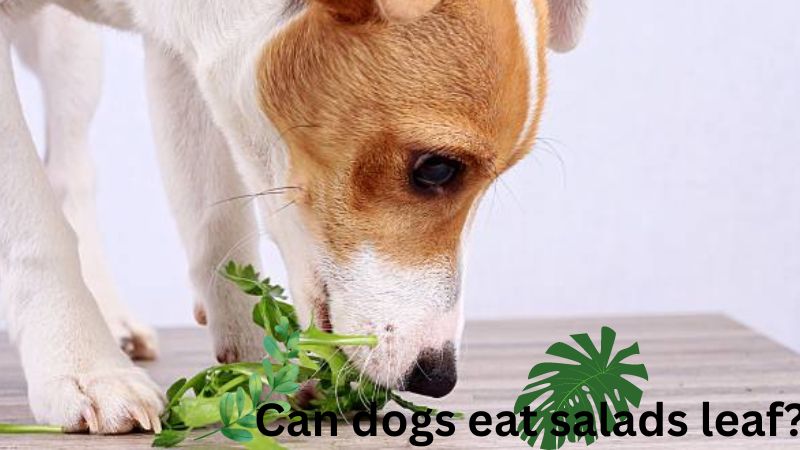
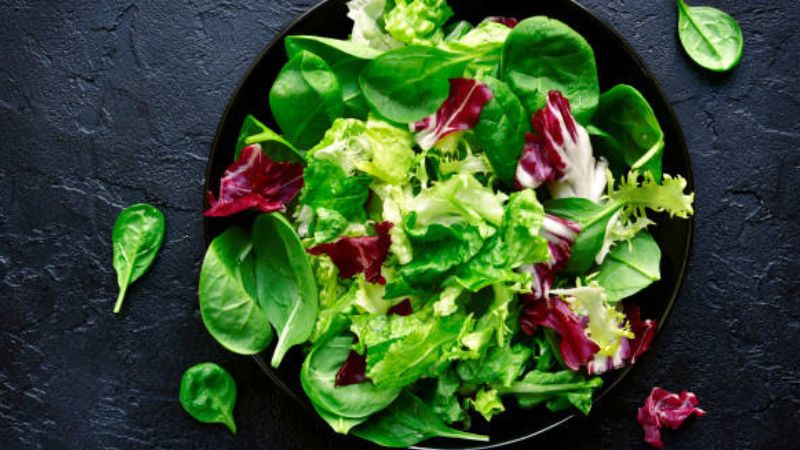
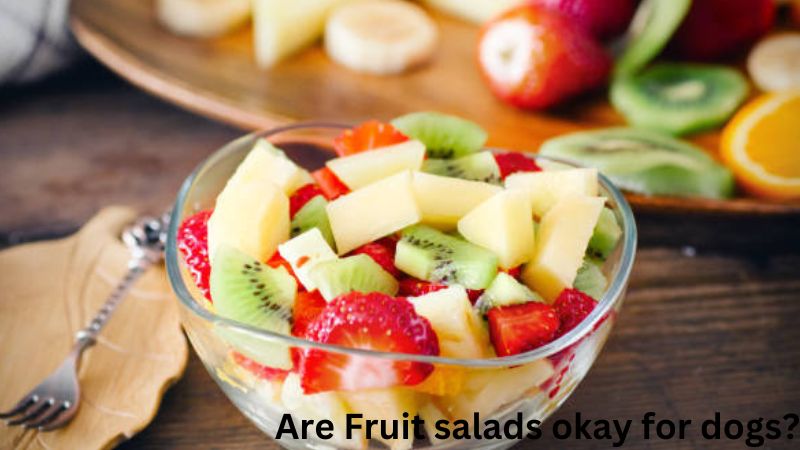
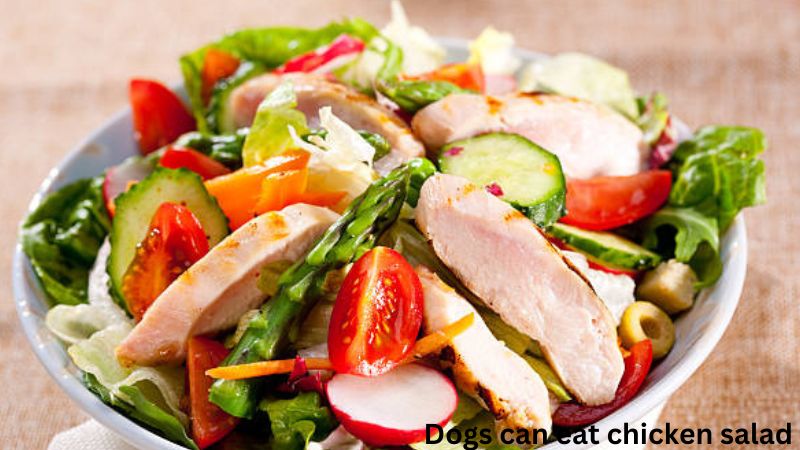
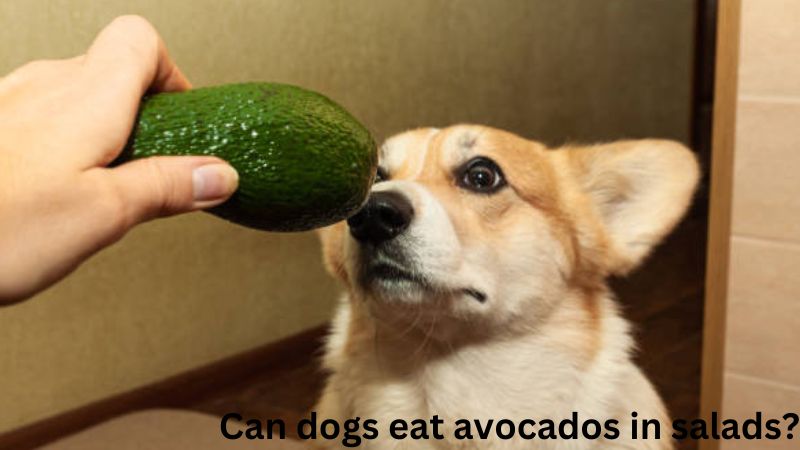
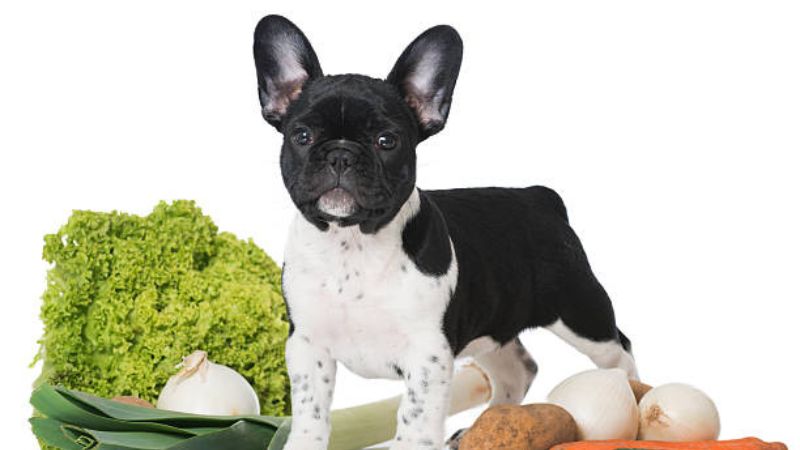
Leave a Reply